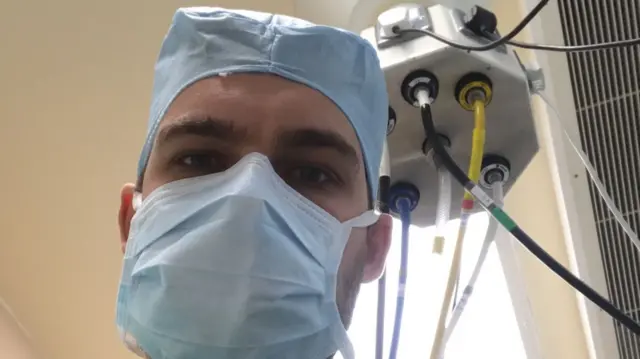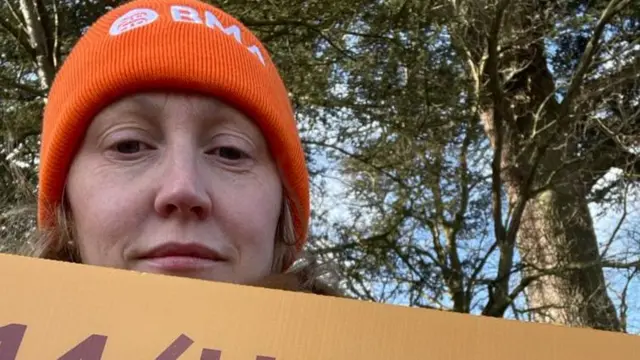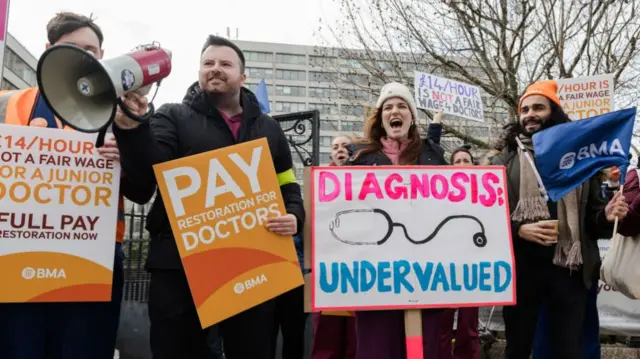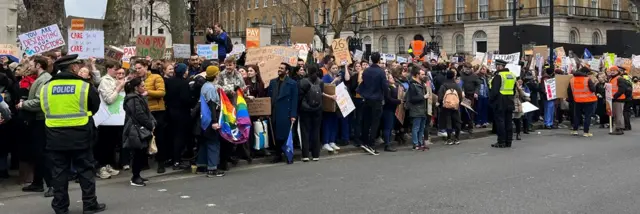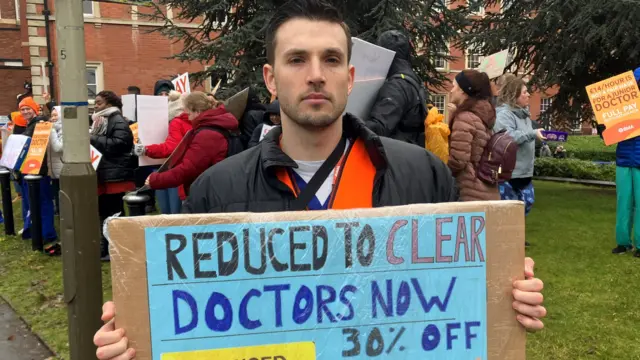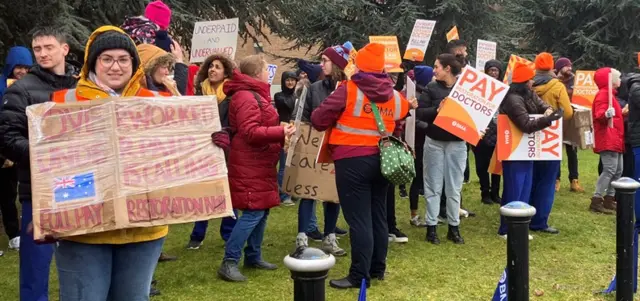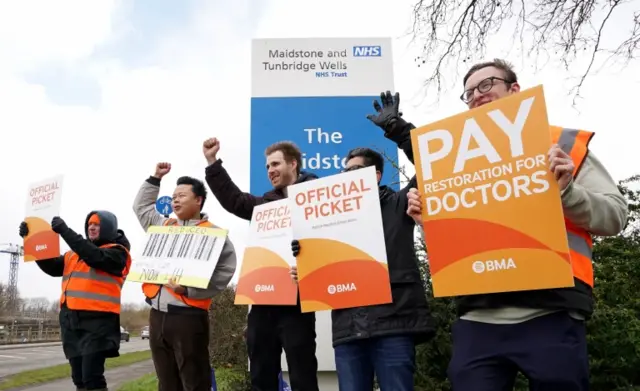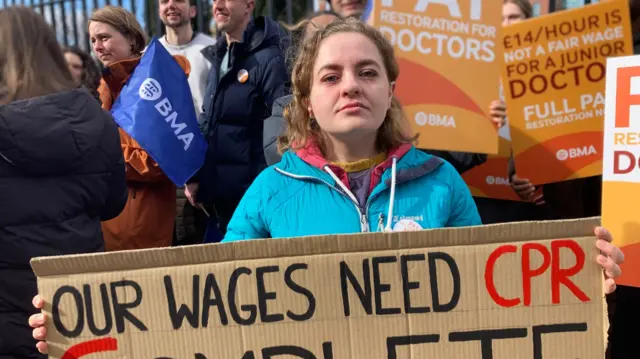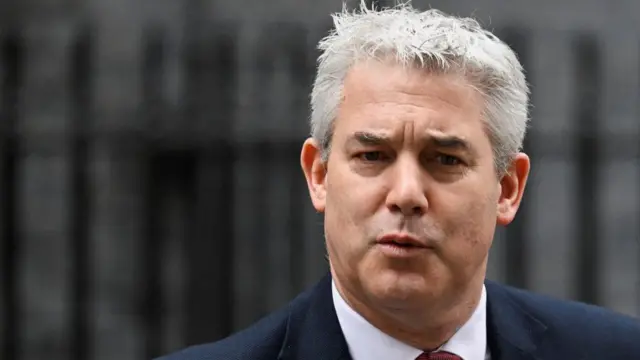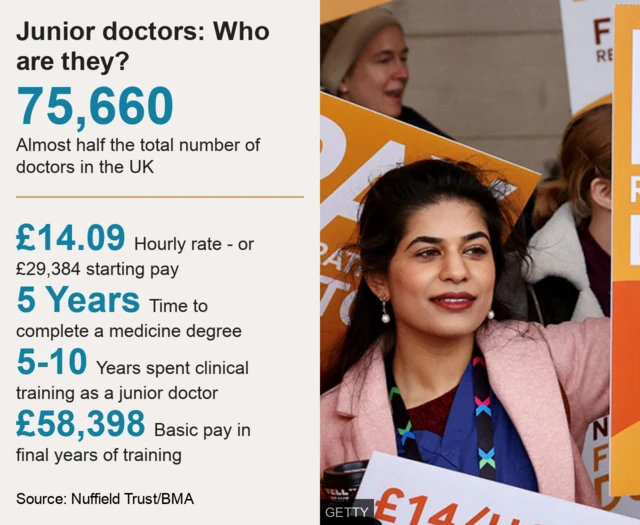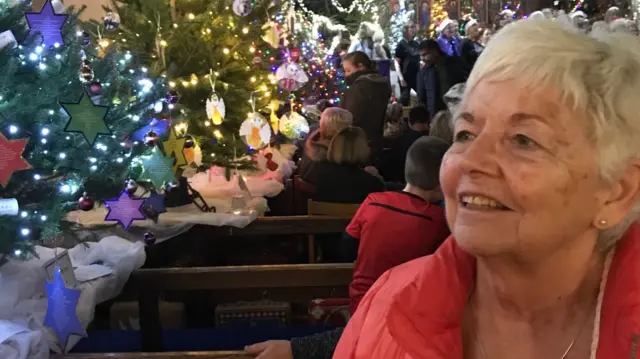Keep up to date on BBC Newspublished at 16:58 GMT 13 March 2023
That's a wrap from us and our live coverage. Thanks for joining us and for sending in your own experiences and concerns to the Live team here at BBC News. This page was written by Gem O'Reilly, Krystyna Gajda, Victoria Lindrea and Sam Hancock and was edited by Jamie Whitehead and Rob Corp.
You can keep up to date with the latest news and analysis during the 72-hour strike at bbc.co.uk/health
There's more live coverage to come on the BBC News website this evening as we bring you a joint press conference by US President Joe Biden, UK Prime Minister Rishi Sunak and Australian PM Anthony Albanese where we think we will get more details about a pact to supply Australia with nuclear-powered submarines. That's expected at around 8pm tonight.

